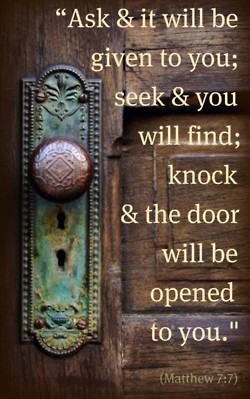What about Grammar?
Page 1 of 1
 What about Grammar?
What about Grammar?
A very boring topic, huh? When writing, it is very important. Sifting through many poems, I've noticed that some of y'all might not have done so well in English class.
Let's go over a few common mistakes:
It's/Its - "It's" is a contraction of "it is", as in It's not smart to confuse grammar. "Its" is possession by and unidentified noun. The cat licked its paws.
Accept/Except - "Accept" means to receive willingly. accept an award. "Except" means all but. Except for the heat, it's a good day.
To/too - "To" is used for places of destination and as a modifier. "too" means also.
Raise/Rise - "Raise" means to cause an uprising. "Rise" means to lift up.
Or/Nor - "or" means a positive choice. "nor" is used with a negative choice (not = nor).
Where/Were - "where" is used to indicate location, "were" is the past tense of "was".
Comma usage is a problem around here.
When to use a comma ( , ):
object in series (cat, bat and rat)
independent thought (i went to the store, then I went to the gas station).
NEVER use a comma before the last object in a series!
When using a comma and a conjunction, the comma goes AFTER the conjunction!
Semicolon ( ; )
Semicolons are used to separate independent thoughts without uing a comma or a period
I washed the dishes; I picked up the mail.
Never use a conjunction with a semicolon ("and", "but", "or", and so on).
Colon ( : )
A colon has some uses:
In this case, it can be used to start off a list (see above).
It can be used to separate a series from a sentence.
"there are three things you need to know: love, honor, and friendship."
Use a colon to separate hours from minutes and seconds.
it is 11:20:43 am (Central Time).
Exclamation Point ( ! ):
Exclamation point is used to indicate excitedness or frustration.
"Yay!" "What the ____!"
Also useful for emphasis.
"Look at the picture!"
Question mark ( ? )
Used to indicate a query.
"are you talkin' to me?"
When using questions is series, only Capitalize the first question.
"Who were you with? where were you? how long were you there?"
Quotes ( " ):
Used to indicate speaking.
"Hello." "Hi, how are ya?"
Also used to separate someone else's thoughts from your own.
He said, "I'll be there by 4:30." Where is he? it's 5:00!
Apostrophe ( ' ):
Used to show possession, emphasize titles, and to separate a quote within a quote.
Larry's sandwich, mait're D, "Like he said, 'it'll be there'".
Exclamatory Question mark ( ? ! ? ) or similar notation.
Used to symbolize great frustration or disbelief.
"What do you mean $500 ? ! ?" "What in the ____? ! ?"
Hyphen (dash) ( - ):
This is used for compound words, non-breathing insults and phrases, breaking words on two lines, separating numbers and characters from letters and so on.
mid-air, not-your-everyday-hare, in-
dependence, A-5.
When using a hyphen to break a word, break on a syl-lable, not on a sy-llable, or a syll-able.
Finally capitalization:
Capitalization serves many uses, but this'll do for now:
Capitaize names of places and people.
Jerry Springer, Taj Mahal.
Capitalize the first word of a sentence.
I am.
Always capitalize I and O, only if that's the whole word.
Capitalize titles and occupations only if they precede the person's name.
President Bush, not Bush, our President.
Capitalize languages, not their speakers.
Spanish-speaking people, French diplomats.
Capitalize names of documents, books, or magazines.
The Magna Carta
Capitalize names that come with a trademark or copyright.
McDonald's, Wal-Mart
Capitalize the names of months.
January, February, ...
Do not capitalize articles (a, an, the) unless they're the first word of a sentence.
Also, don't capitalize prepositions (of, for, etc.) and conjuctions (and, but, or) in the same way.
Other Questions
When should I write out a number?
When the number can be said in less than three syllables, except for those under one hundred that end in seven.
Why so many rules?
Well, it does make it a little easier to read, to be honest.
What point does this serve?
Proper grammar usage is an often-overlooked necessity that coems in really handy if you want a job.
Now, that wasn't so bad, now was it? OK, now everybody write on the board, "I will not mess my grammar, nor will I misspell words, too."Foxy Cory
Voicesnet.com
Page 1 of 1
Permissions in this forum:
You cannot reply to topics in this forum



 Jeanne Guyon (1648-1717) wrote powerfully about the need for an intimate relationship with Almighty God, including this: “He who has a pure heart will never cease to pray; and he who will be constant in prayer, shall know what it is to have a pure heart.”
Jeanne Guyon (1648-1717) wrote powerfully about the need for an intimate relationship with Almighty God, including this: “He who has a pure heart will never cease to pray; and he who will be constant in prayer, shall know what it is to have a pure heart.”



